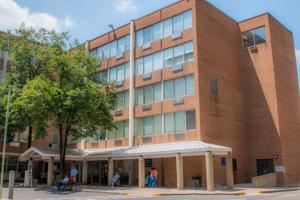As one of the first cardiac surgery departments in the United States, we’ve provided outstanding cardiac surgical care for more than 70 years. Our expert team of heart surgeons work with your cardiologist, cardiac nurses, other BMC specialists, and — most importantly — you and your family to provide the highest quality care and ensure the best possible outcomes.

U.S. News & World Report
BMC is recognized as high-performing in Cardiology, Heart, and Vascular Surgery by U.S. News and World Report
Location and Contact
Cardiovascular Center
Monday – Friday 8 a.m. to 4:30 p.m.
Related Departments and Programs
Cardiovascular Center
Cardiac Surgery

Research Overview
Our cardiac and thoracic surgeons are engaged in a range of research activities designed to improve care and quality of life for their patients. Our current research projects include surgery for endocarditis, socioeconomic disparities in cardiac surgery, mechanical circulatory support, and ECMO.
Explore the Program
Information You May Need
Billing and Insurance
Login to MyChart
Patient Information
 vi
vi 

 English
English Français
Français Deutsch
Deutsch Italiano
Italiano Español
Español Kreyol ayisyen
Kreyol ayisyen